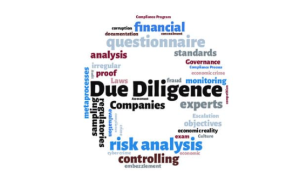
Investing in Startup Enterprises – Here’s What it Takes
Investing in startups is not for the faint of heart but has the potential to be a hugely worthwhile risk for certain investors. While investing in venture capital funds diversifies certain risks, it also compels investors to accept the sobering fact that 90% of financed firms will never go public (IPO).
This is why you must make an informed decision if you’re thinking about investing in a startup enterprise. Let’s take a look at a few key considerations.
What is the EIS, and how can it work for Investors?

The Enterprise Investment Scheme (EIS) is an investment program that offers tax relief to UK taxpayers who invest in high-risk, early-stage, unquoted companies. Investors can invest up to £1m per tax year and up to £2m per year in Knowledge Intensive companies.
EIS provides several potential tax reliefs for investors, such as:
- 30% income tax relief
- No capital gains tax on any profit arising from the sale of shares held for at least three years
- Deferral of payment of capital gains tax from the sale of another asset if invested through EIS
- No inheritance tax on qualifying shares held for at least two
EIS can be attractive to investors who have already fully utilised their annual ISA allowances and want to diversify away from their pensions.
Investors should consider their attitude to risk, capacity for loss, and liquidity when determining how much to invest in EIS. The minimum investment amount for EIS funds or portfolios is typically between £15,000 and £30,000, but it can vary depending on the provider. Crowdfunding platforms may offer lower minimums, but they usually involve investing in one company rather than a pre-vetted selection of companies.
Investors can search for EIS providers online and download information about the company, investment strategy, portfolio, and performance. For example, leading EIS provider Oxford Capital requires a minimum investment of £25,000 into their EIS fund. Their well-established platform offers investment in early-stage companies in leading UK sectors, such as fintech, digital health, e-commerce, AI & machine learning, and B2B SaaS.
What factors should you consider before making an investment?

There is a minimum investment requirement for every EIS, regardless of whether it involves a single firm or a portfolio of businesses. The important question, however, shouldn’t be how much can you invest but rather how much should you invest.
Various factors need to be taken into account when determining how much to invest, such as:
1. Attitude towards risk
Does investing in high-risk, early-stage companies match your total risk profile?
2. Potential for loss
Will the decline in the value of your holding of EIS shares have a significant impact on your way of living? Don’t expect your money back. Never invest money you’re willing to lose, whether a start-up requires your investment to expand for a few years or completely fails. Consider whether you should be putting your money at risk if the loss of your investment will negatively or severely impact your life.
3. Liquidity
Unquoted shares cannot be purchased or sold like regular share classes, and you will only be able to access your invested funds when the shares are sold, either by means of a trade sale or an Initial Public Offering (IPO). Investors must feel secure and certain that they won’t require access to their money for at least 5-7 years.
4. Due Diligence

Analysing the business plan and the strategy for future development and profitability is the first stage in performing due diligence on a startup. The idea’s economics must produce tangible results in the actual world.
Many fresh concepts run the danger of failing to find an audience. Important factors to take into account include fierce competition or significant entrance obstacles. New ideas should also take into account legal, regulatory, and compliance problems.
5. Founders
Several Angel investors and venture capitalists claim that the company’s founders’ motivation and character are equally as crucial as—if not more so than—the actual business concept.
Founders must have the expertise, enthusiasm, and talent essential to endure periods of failure and disappointment. They must also be open to recommendations and constructive criticism from both within and beyond the organisation. They must be adaptable and quick to change the company’s direction in reaction to unanticipated technological or financial changes.
Final Questions To Ask Yourself
If the business succeeds, are there any temporal risks that need to be considered? Would an IPO be welcomed by the financial markets in five or ten years? Will the business have developed sufficiently to carry out a successful IPO and deliver a respectable return on investment?
Startup companies are still in the concept stage and may not yet possess a functioning product, client base, or revenue source. Investing in startups can be a highly gratifying endeavour if and when the investments do pay off.
The danger of losing one’s full investment must be considered, especially as most new businesses or products simply do not succeed. On the other hand, those that do succeed tend to generate extremely substantial returns on investment.





